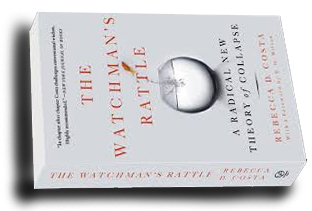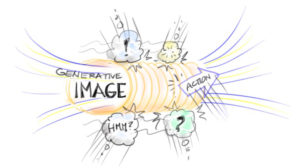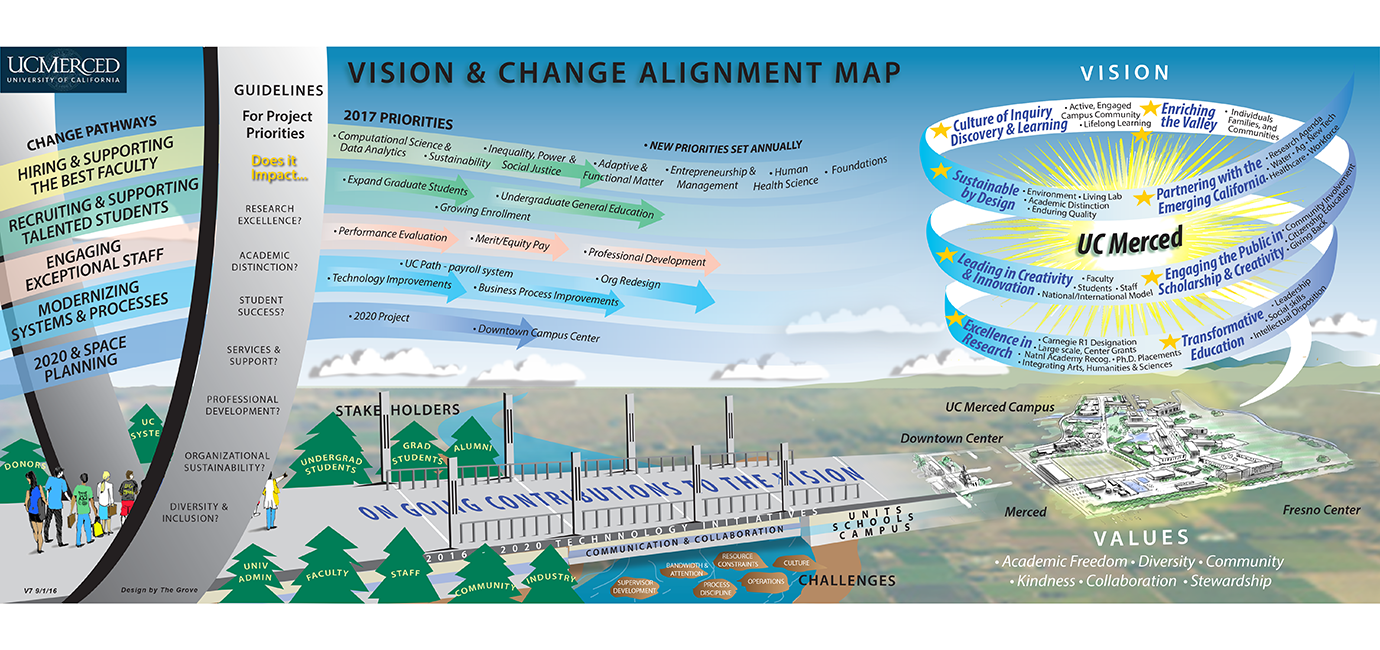A Radical New Theory of Collapse
I sustain a keen interest in metaphors and plausible narratives about where we are headed as a society, and frankly, I am worried. I was rocked recently by a close reading of sociobiologist and futurist Rebecca Costa’s 2012 best seller, The Watchman’s Rattle: A Radical New Theory of Collapse. (She has a new book, also a best seller, called On the Verge, which I haven’t read.) Costa has a long history in Silicon Valley and a polymath’s appetite for large-scale thinking. My reading, in the context of seeing our country spiraling into policy chaos, is that her 2012 message is even more relevant in 2018.
2012 best seller, The Watchman’s Rattle: A Radical New Theory of Collapse. (She has a new book, also a best seller, called On the Verge, which I haven’t read.) Costa has a long history in Silicon Valley and a polymath’s appetite for large-scale thinking. My reading, in the context of seeing our country spiraling into policy chaos, is that her 2012 message is even more relevant in 2018.
Her “new theory” is that civilizations collapse when complexity outstrips human’s cognitive ability to grasp what is going on. More interestingly, she identifies the symptoms that suggest collapse is beginning. I’m not wanting to believe we are collapsing, as I am much more interested in growth and development and what our field of process consulting and visual practice can do in response. Yet her argument is persuasive.
Let me summarize what she is talking about. Drawing from both evolutionary biology and new findings in neuroscience, Costa describes in detail how the Mayans, Romans, Germans and others expanded and collapsed. Collapse begins with gridlock—simply too many conflicting forces and events compounding—and continues with the substitution of belief for facts.
In most civilizations, Costa observes, there is a balance between untethered beliefs and scientifically or experientially validated knowledge. We use beliefs to deal with the ineffable and non-objective, and we have (at least for the last many hundreds of years) looked to science for help with being objective, particularly regarding the physical world. Yet when complexity begins to overwhelm people’s cognitive abilities, beliefs take over and attention to facts disappears.
For the Mayans facing severe drought, their engineering of cisterns and other water strategies gave way to human sacrifice. For the Germans after World War I, the complexity of their post-war fractured economy gave way to fascism and blame and World War II. Sound familiar?Read more…

 It happened this week as I was returning from Decatur, Georgia and the 22nd
It happened this week as I was returning from Decatur, Georgia and the 22nd 